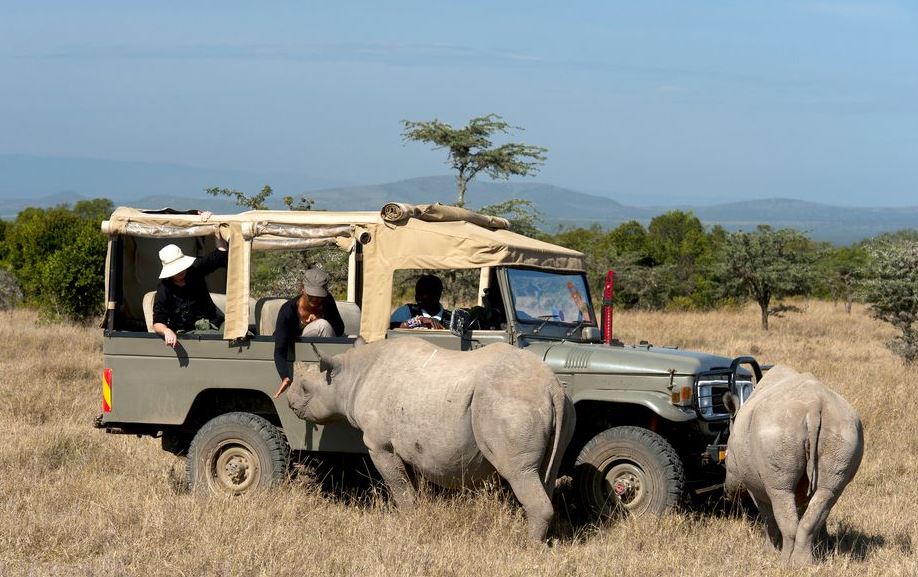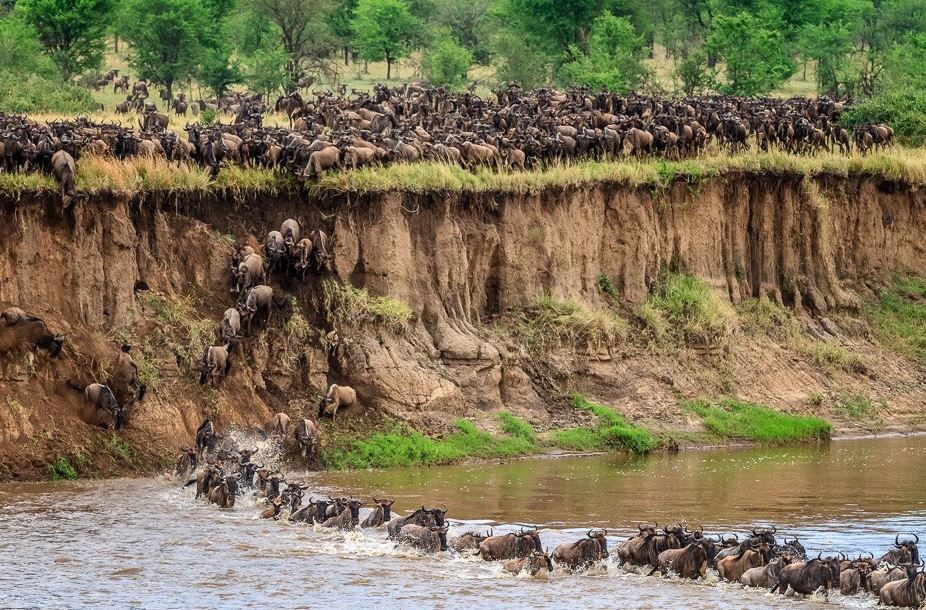
If the Government’s official figures can be relied upon, the number of people visiting Kenya from abroad last year increased from just below two million visitors to a total of 2.05 million. The increase was less than one percent, but it appears that the extra visitors were spending more on their travels than they have in the past. The total amount of money earned by the Kenyan tourism industry during 2019 has been officially listed as $1.61bn, which, when converted back into local currency, works out at 163.56 billion shillings. That’s an increase of just under four percent over 2018 and has to be considered a success considered the ongoing perceived political instability within the region.
It’s thought that a significant number of the people who either came to the country for the first time or returned to it last year were safari tourists. Kenya is known across the world for being one of the most beautiful countries to visit when it comes to looking for exotic animals. The wildlife and landscape of Kenya have been borrowed by online slots websites like Amigoslots.com to star in games such as ‘Hot Safari’ and ‘Africa Goes Wild,’ but for a long time, it felt like the online slots were making more country than the country who could offer those same attractions in real life. Perhaps some of those online slots players have been moved to visit the country in the flesh – or perhaps both local and international theories on the reasons why people might not wish to visit Kenya have been overstated.
The Kenyan tourism industry – and the Kenyan Government – likes to compare itself to South Africa when it comes to visitor numbers and amenities. The feeling among authorities is that South Africa doesn’t have anything Kenya can’t offer when it comes to things to see or places to go, but foreigners prefer to visit South Africa because they feel safer there. It’s an unfortunate truth that Kenya has been plagued by insurgent attacks in recent years, and when such events occur, they provoke worried responses from international newspapers. The death of three Americans in the most recent Al-Shabaab attack, for example, will probably have a negative impact on the number of American tourists willing to visit the country this year. For visitor numbers to increase while such things are happening, though, implies that the issue of people being put off may not be as bad as the authorities fear.

While the income that comes from tourism is of vital importance to the Government and general financial well-being of Kenya, the industry is equally important when it comes to jobs, with thousands of Kenyans employed in roles that depend on visitors coming into the country. The years between 2012 and 2015, when Al-Shabaab was at its most active, saw a significant reduction in tourism numbers, which in turn led to a rise in unemployment rates. With 2019 bucking the trend, officials are now hopeful that the new decade will see a return to prosperity and the creation of new jobs to replace those that have been lost.
The map of Kenya would look very different if the government played its role well.
One factor which may contribute to further improvement to Kenya’s tourism numbers is a proposed change in regulations when it comes to safari tours of South Africa. The country’s Kruger Park is one of the most popular safari destinations in the continent of Africa (and the whole world), but the Government there is becoming increasingly concerned about the impact that tourism is having on local communities, cities, and roads close to the park. Johannesburg and Pretoria are suffering from chronic congestion problems at busy times of the year, and there have been a number of fatal traffic accidents directly attributed to tourism within the past two years.
South African authorities are now considering a range of measures to bring the problem back under control, which may include a restriction on the use of technology and mobile apps to identify the locations of animals. It’s thought that the use of such apps encourages overcrowding and sudden surges of visitor numbers in concentrated locations. Any restriction of the apps and other animal-locating technology will be seen in some quarters as a restriction placed upon the act of going on safari, and Kenya may be well placed to benefit from such a restriction.
As there are no current plans to introduce any form of restrictions on safaris in Kenya, Kenya may be seen as a more attractive option for people who want to ensure that they make the most out of their safari vacation by seeing as many exotic animals as possible. While crowding and congestion are seen as a problem at Kruger Park, it’s a problem that would likely be welcomed by Kenyan authorities, who in the short term would be happy to see a boost in tourism revenue, and would worry about the potential issued caused by an upswing in numbers at a later date.
Kenya, as we all know, is one of the most beautiful countries in the world. It has much to offer to international visitors, and also to visitors from the rest of Africa. Internal flights within the continent have never been as plentiful nor as cheaply available as they are right now, and the opportunity is there for Kenya to take the lead on tourism during the early months of this new decade. How things progress from here remains to be seen, but the fact that the country is welcoming more visitors now than it was two years ago can only be seen as a positive. If this trend continues in years to come, Kenya’s best years as a travel destination could still be ahead of it.






